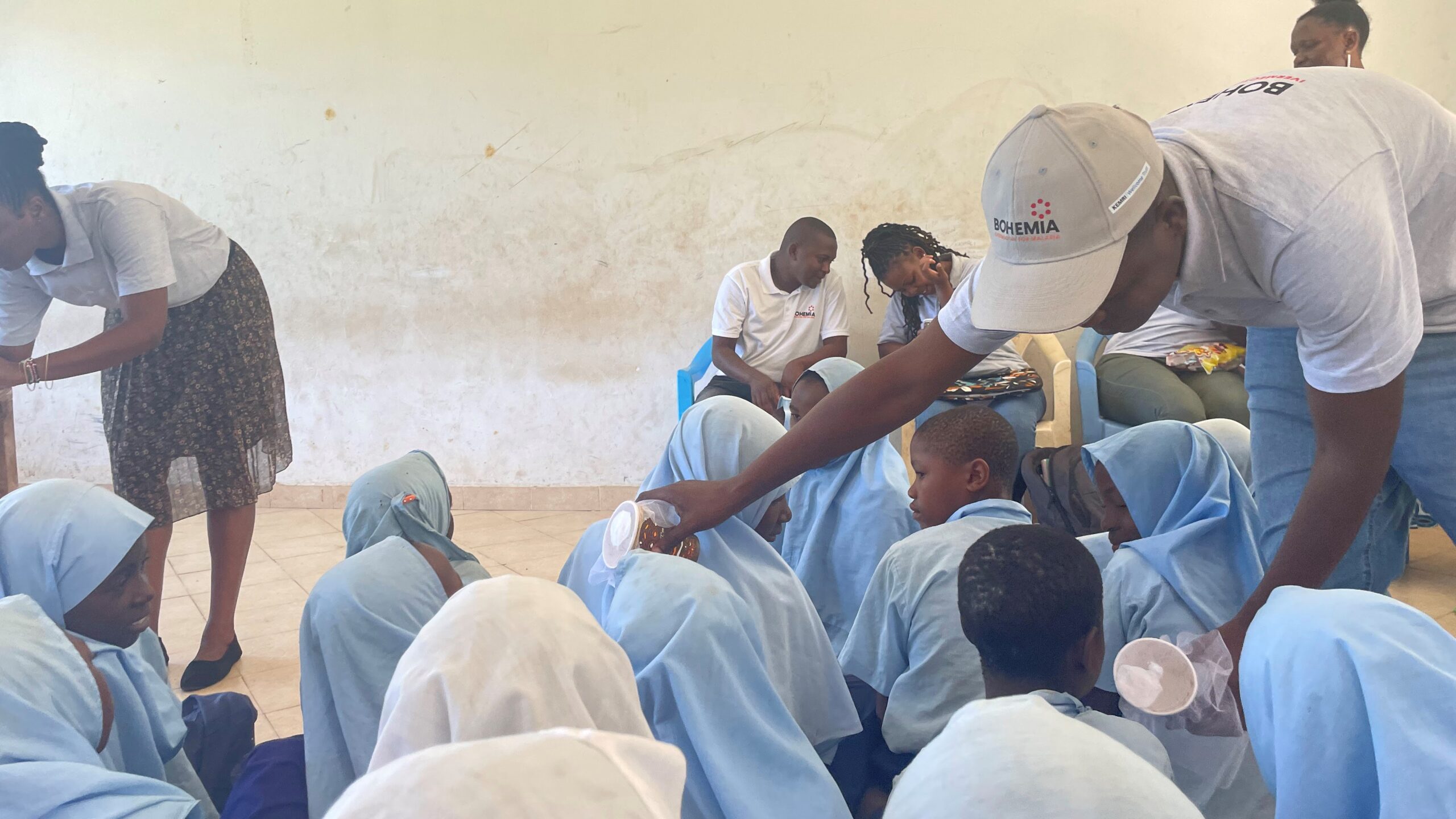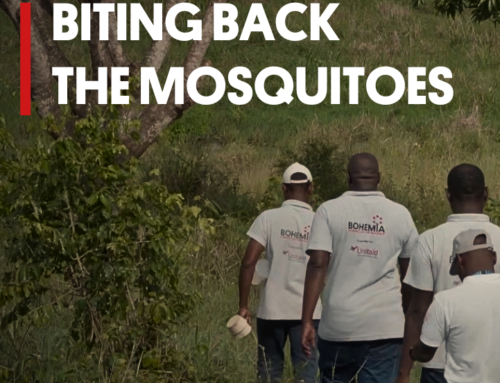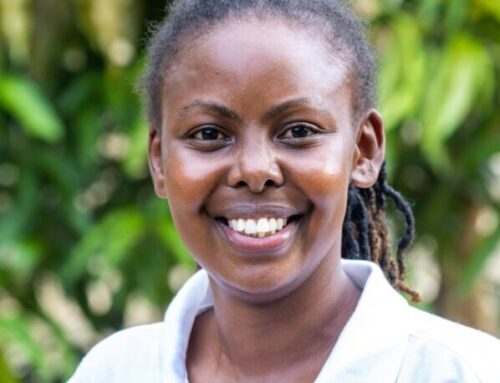
The BOHEMIA project is working with schools as part of its community engagement strategy to raise awareness about vector control to prevent malaria.
Lydia Kasiwa and her community engagement team are always looking for creative ways to maximize engagement with the community in Kenya’s Kwale County, one of the trial sites of the BOHEMIA project. They recently decided to explore the possibility of working with schools to raise awareness about vector control.
Mass drug administrations are distinct health interventions that demand high levels of collaboration with the community. Due to their reliance on high levels of participation, community engagement activities are crucial both at the preparatory stage and the implementation stage.
The BOHEMIA project has already taken various steps including conducting ethnographic research, meeting up with community leaders, and participating in local radio programs to reach different sections of the community. But following a request from local education authorities to raise awareness about malaria, the project members are now teaming up with schools in the trial district to meet several goals.
“By engaging children, we hope to create a ripple effect of information dissemination within families and the wider community,” she shares. Kasiwa points out that interactions with school children are not just about raising awareness of the project. “We want to demonstrate the small actions that everyone, including children, can take to fight malaria.”
Bringing mosquitoes to schools
Classrooms are fertile ground for sowing new imaginations. When Kasiwa and her team comprising scientists, entomologists, and fieldworkers visit schools, they do more than raise awareness about malaria and vector control. They provide a glimpse into their world of research, offering role models in sciences for the children to look up to.
Beauty Mwaka, from the entomology team, commented, “The children are responding very well to our interactive pedagogies. They especially love to see the mosquito samples that we bring along.”
Most importantly, the children are motivated to do their bit to prevent mosquitoes from breeding close to their homes. They express enthusiasm to clear their surroundings of small shrubs and get rid of stagnant water.
The significance of malaria control in children’s lives
Fighting malaria can have far-reaching benefits, beyond preventing deaths. A study led by the Barcelona Institute of Global Health in the Magude district of Mozambique was able to demonstrate that a malaria elimination intervention led to a 28% decrease in levels of school absenteeism and a 2% increase in average grades.
“It is a win-win situation. We are helping schools teach students to prevent malaria transmission and the schools are giving us a platform to raise community awareness about our vector control project,” expressed Hemedi Mwaushanga, a project member visiting the schools.






